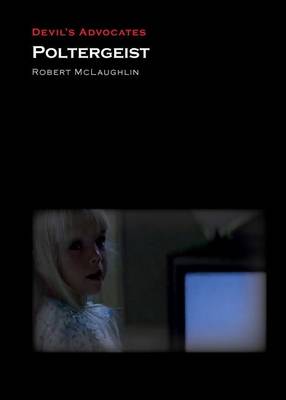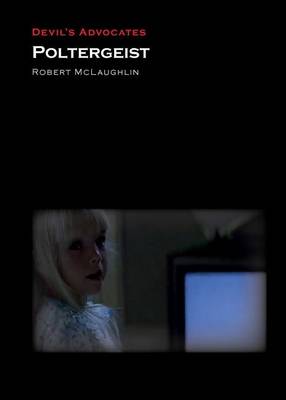
- Retrait gratuit dans votre magasin Club
- 7.000.000 titres dans notre catalogue
- Payer en toute sécurité
- Toujours un magasin près de chez vous
- Retrait gratuit dans votre magasin Club
- 7.000.0000 titres dans notre catalogue
- Payer en toute sécurité
- Toujours un magasin près de chez vous
Description
'Created' by Steven Spielberg yet officially directed by Tobe Hooper, Poltergeist
(1982) can be best described as 'family horror movie' both in its target audience and in its narrative context, the story of an All-American suburban family, the Freelings, whose home suddenly becomes the site of a spectacular haunting, apparently summoned by their young daughter. The film is somewhat of an anachronism and this Devil's Advocate explores this in both the scope of production and narrative.
The book discusses the duality of the text highlighting debates surrounding both Spielberg's somewhat saccharine portrayal of middle-class Americana and his more subversive cinematic endeavours. The duality of the text also will also be discussed in the context of the film's production - with both Spielberg and Hooper on set for much of the time, the result was a movie with the production values, effects and marketing of a high budget mainstream cinema blockbuster apparently directed by a subversive 'grindhouse' cinema auteur. Yet Poltergeist is neither nor both of those things, instead being a unique hybrid of genres and styles taking the best and worst from both aspects of family blockbuster and cult horror film, and as such can be seen as a text that is something unique - a classic modern take on the traditional haunted house story.
Spécifications
Parties prenantes
- Auteur(s) :
- Editeur:
Contenu
- Nombre de pages :
- 128
- Langue:
- Anglais
- Collection :
Caractéristiques
- EAN:
- 9781800856981
- Date de parution :
- 01-07-23
- Format:
- Livre broché
- Format numérique:
- Trade paperback (VS)
- Dimensions :
- 109 mm x 190 mm
- Poids :
- 294 g

Les avis
Nous publions uniquement les avis qui respectent les conditions requises. Consultez nos conditions pour les avis.






